Penn LGBT Center’s Scholars-in-Residence Program returns, welcomes three local voices
The University of Pennsylvania’s Penn LGBT Center’s Scholars-in-Residence Program is returning for 2024 and will welcome three new LGBTQ+ scholars with diverse backgrounds, all from the Philadelphia area. This year’s program includes a TedTalk by each of the scholars, which will take place during the University of Pennsylvania’s QPenn week March 22-29. This year’s scholars include a cohort of three local activists and entrepreneurs: TS Hawkins, Kyle Cuffie-Scott and Dr. Danna Bodenheimer.
The program is a first-of-its kind initiative that amplifies queer and trans voices, integrating scholars from varying lines of work into Penn’s classrooms. One of the main objectives of this program is to increase students’ awareness of the LGBTQ+ community and encourage social change.
In the summer of 2022, the Penn LGBT Center received an anonymous endowment of $2 million meant to advance LGBTQ+ scholarship and awareness of the queer and trans community. The Center used this money to launch the Scholars-in-Residence program in 2023. In that first year, the Penn LGBT Center hosted ALOK, a renowned gender-nonconforming author, comedian and public speaker. This year, the focus will be on scholars from the Philadelphia area to connect students with LGBTQ+ professionals who represent the local community.
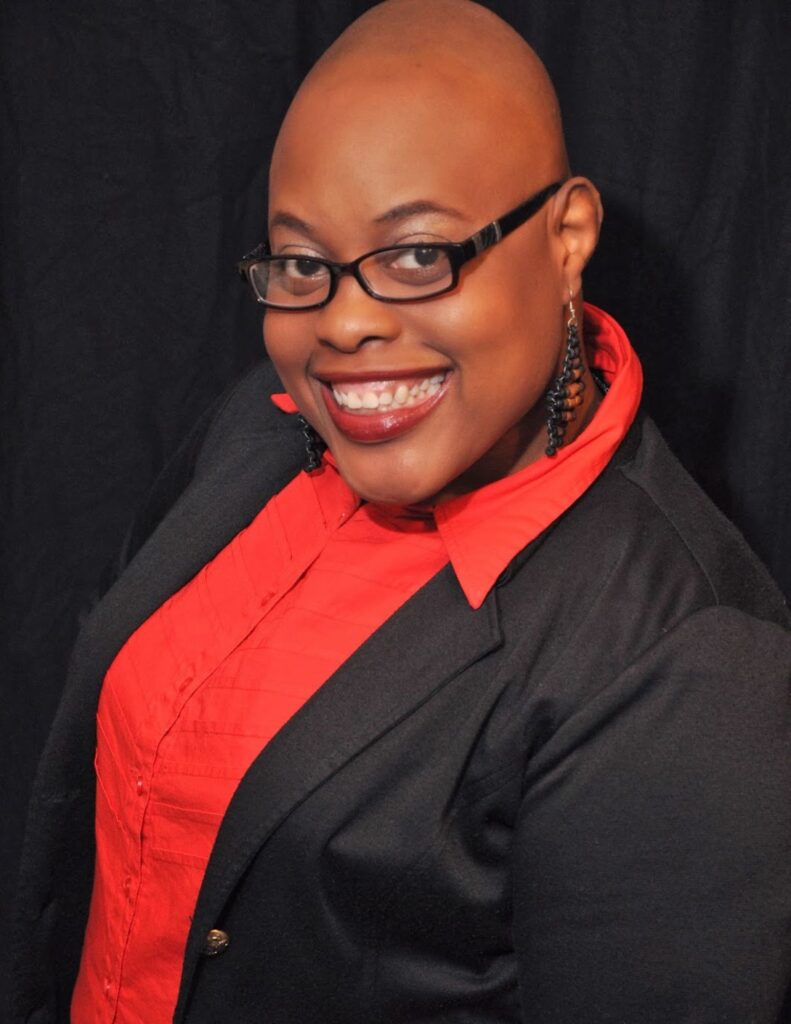
TS Hawkins
Hawkins is an international, award-winning poet, performance artist, playwright and trauma-informed educator. They have been recognized by the Barrymore Awards; featured in publications such as WHYY, NPR and the Chicago Tribune; and are a recipient of both the Victory Foundation Theatre Education Award and a Best of Philly Award. Their written works include “Seeking Silence,” “sweet bread peaches” (formerly ”Cartons of Ultrasounds”), “Too Late to Apologize,” “In Their Silence” (formerly “They’ll Neglect to Tell You”) and others.
“What I love and what I’m intrigued by [about the Scholars-in-Residence program] is, yes, they gave us parameters, but the process is very collaborative and very open,” Hawkins said.
“They want you at the table doing what you do, and a lot of times in a residency, they want your work, but they still want you to follow a specific framework to get that process and product done,” they added. “This has been a very different and engaging experience, which is exciting.”
Hawkins also spoke to the importance of poetry and education, which they will be applying to their TedTalk, “Purpose, Poetry, and Power: Tools for Thriving in a Shifting Society.” The talk will address how one finds peace in the present climate, particularly in the context of social media. Hawkins will also be turning their talk into a master class in the program.
Hawkins also shared their philosophy, explaining, “If you have access to language and are able to paint the world with your words, that’s poetry.”
Kyle Cuffie-Scott
Cuffie-Scott has appeared on “Good Morning America” and has made birthday cakes for celebrities such as Janet Jackson. As the founder and co-owner of Darnel’s Cakes LLC — which will be celebrating its fourth year at its Old City location in May — Cuffie-Scott explained that he began the bakery to honor his cousin Darnel, who passed away due to AIDS complications. Although the business began as a fundraiser to spread awareness, it blossomed into a full brick-and-mortar shop, which has continued Cuffie-Scott’s activist work.
Cuffie-Scott’s business raises awareness about the HIV/AIDS epidemic and contributes to activism and advocacy by collaborating with national and local organizations that work to combat both the virus itself and the pervasive stigmas around those with the disease.
Of his activism, Cuffie-Scott explained tha Darnel’s Cakes focuses on, “spreading the word about getting tested, finding ways to get tests in people’s hands so it’s not so taboo or scary, and helping to de-stigmatize HIV and AIDS a little bit more.”
Cuffie-Scott explained that he is most excited about the opportunity “to help change some young lives and get them on the right track of getting tested early, letting their friends know and staying on top of their sexual health.”
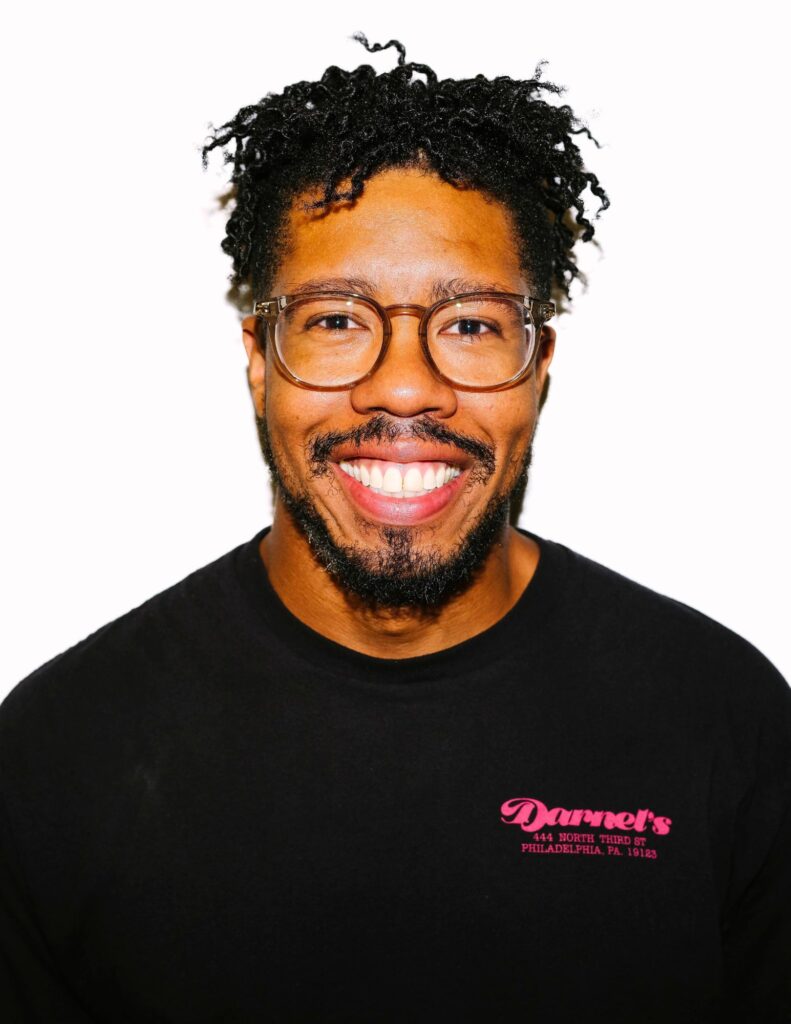
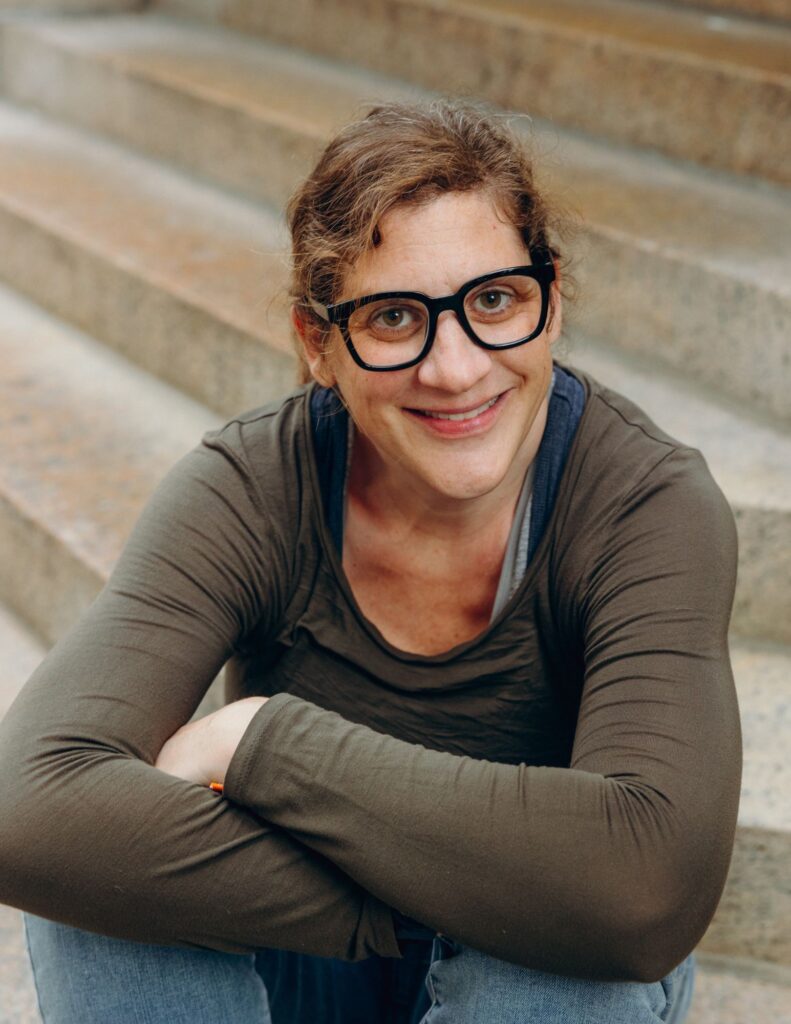
Dr. Danna Bodenheimer
Bodenheimer, who could not be reached for comment, is the founder and director of Walnut Psychotherapy Center, a prominent therapy practice in Philadelphia serving the LGBTQ+ community. Bodenheimer also has more than 15 years of experience in the mental health field, with a particular focus on providing therapeutic care to those in the LGBTQ+ community. For the Scholars-in-Residence program, she will bring the perspective of an experienced instructor and published author who is particularly interested in the effects of dual marginalization.
Responding to community needs
Jake Muscato, one of the Penn LGBT Center’s associate directors, explained that the transition to Philadelphia-based scholars this year was because the Center wanted to give local activists and educators a platform and because of the scholars’ significant contributions to the community. Muscato elaborated that connecting to the community is an essential tenet of the LGBT Center’s goals.
Muscato also shared that another of the Scholars-in-Residence program’s main goals is to “change hearts and minds, which is the goal of advocacy and scholarship.”
“It’s often community activists who have told the story of queer and trans communities, so this is the natural connection between this sort of work,” said Eric Anglero, the director of Penn’s LGBT Center.
Anglero also highlighted that the work of the three scholars in the 2024 program is integral to the current story of the LGBTQ+ community in Philadelphia and the ways that academic spaces talk about gender and sexuality.
In addition to connecting and empowering queer and trans students, the program is a learning opportunity for students who may not otherwise encounter these topics, organizations or conversations. Anglero also explained that the aim of the program is to truly foster learning, including those working within the Penn LGBT Center. In fact, many facets of the program are driven by the students themselves, as the Center actively seeks their input on what they want out of the program.
“My hope, my dream is that we are responsive to the community needs and that we are really open to listening, as I think the Center really has done since its foundation,” Anglero said.
“As we face this litany of legislation happening nationally, I think this is one of the ways to highlight how advocacy can happen even in the face of some really terrible legislative maps,” Anglero added.
New Leadership Announced At The LGBT Center
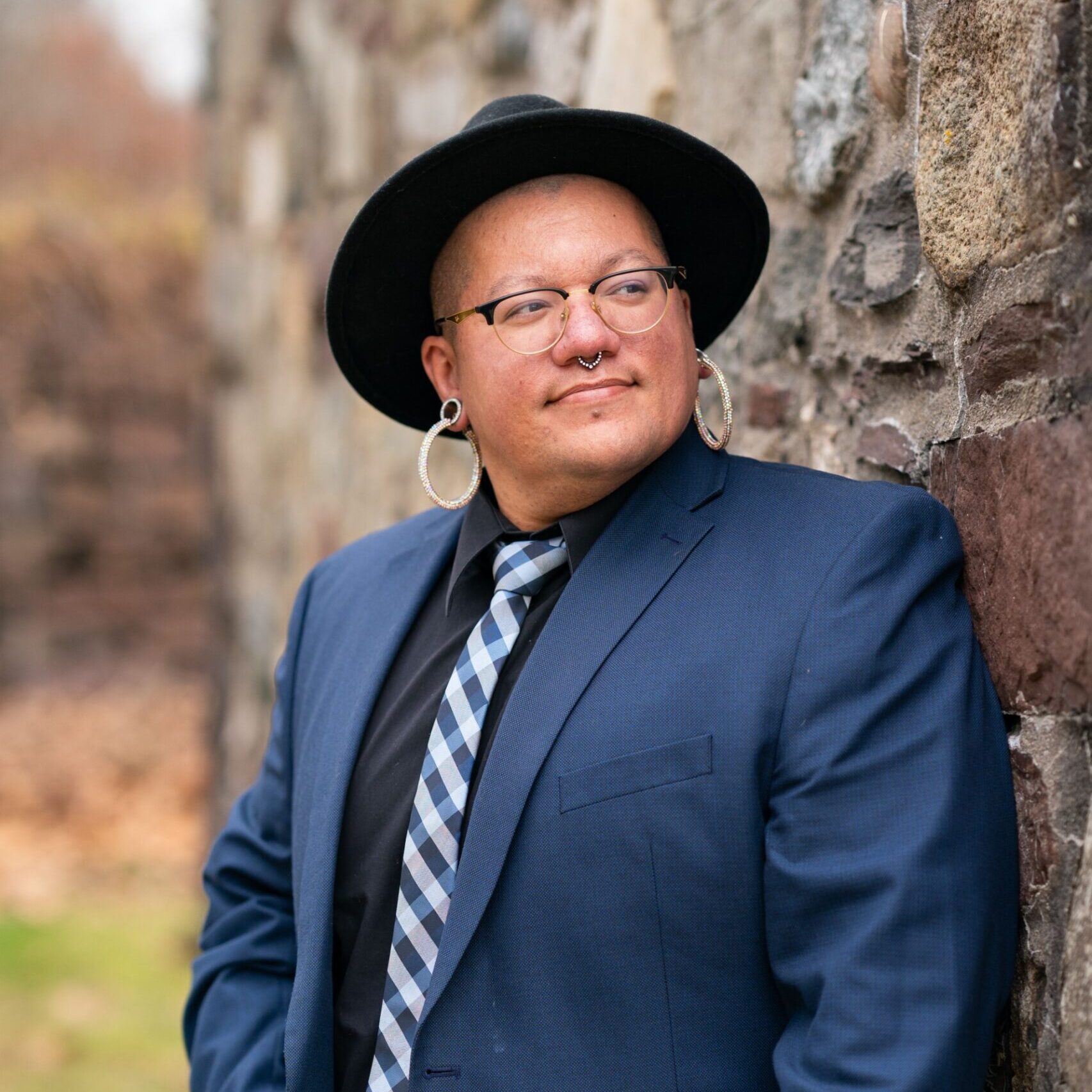
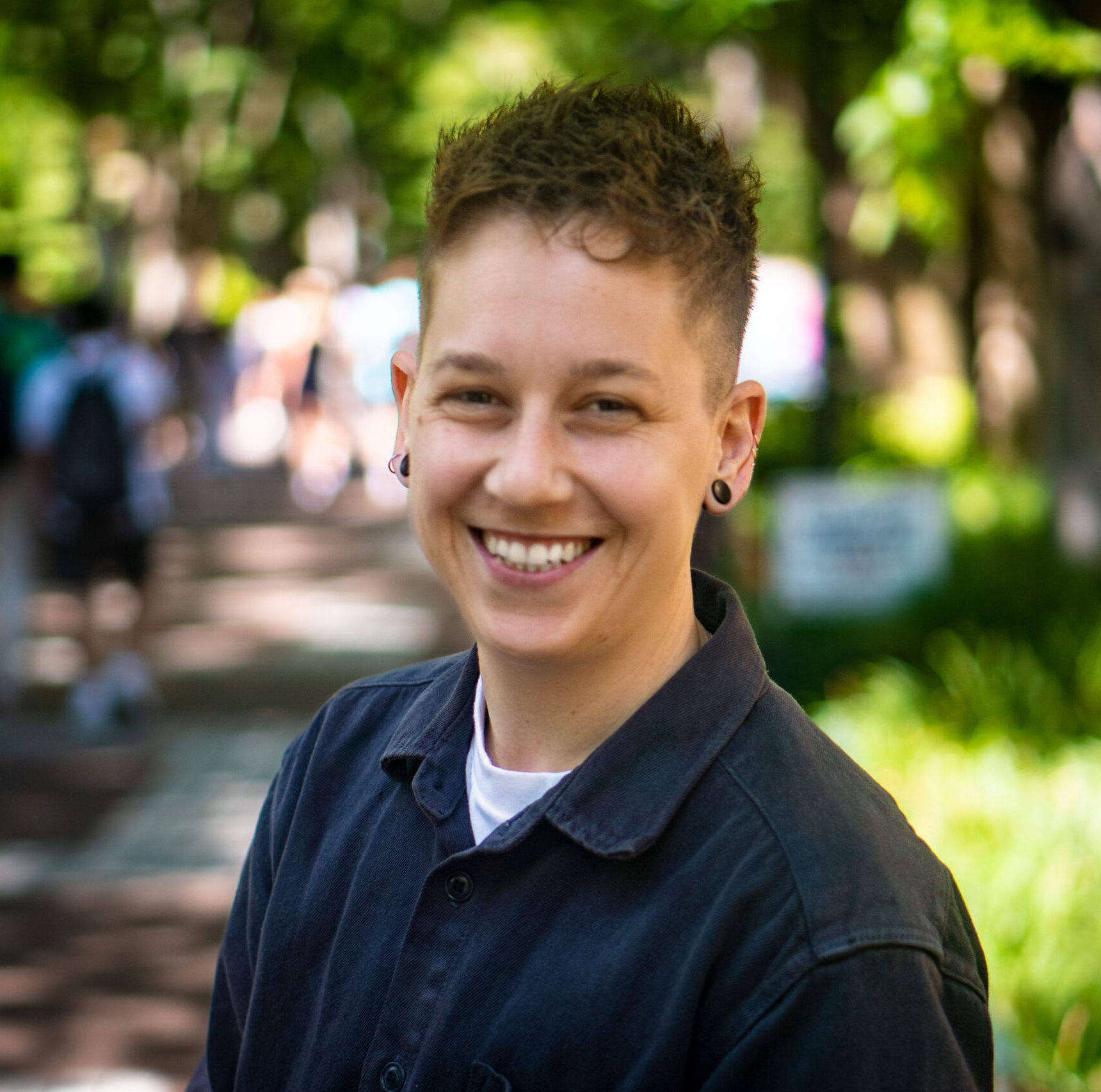
Eric Anglero (they/them) was appointed as the new Director of University of Pennsylvania’s LGBT Center, Associate Vice Provost for University Life Will Atkins announced. Following an extensive national search, Anglero brings a wealth of knowledge, experience, and aspirations to the role.
Anglero joins Penn from Princeton University’s Gender and Sexuality Resource Center, where they provided training for community partners, supervised staff, and helped oversee its direction and mission. In addition to their role at Princeton, Anglero currently serves on an alumni board at Stockton University and the executive board at COLAGE, an organization for people with one or more queer parents and/or caregivers.
“I am elated to join the historic tradition at Penn and the incredible staff of the LGBT Center,” said Anglero. “I look forward to being a contributor to the work of the broader Cultural Resource Centers in University Life and look forward to meeting with the campus community.”
Anglero earned their Master of Arts in American Studies at Stockton University.
Additionally, Wesley (Wes) Alvers (they/them) will serve as the newly appointed Associate Director. They hold a Master of Social Work degree from Penn, specializing in macro practice for LGBTQ+ populations. Alvers previously served as the LGBT Center’s Program Coordinator, and they are committed to supporting and advocating for queer and trans communities at Penn.
Celebrating Pride Month: A Conversation with Penn’s LEAP
To celebrate Pride Month, University Life hosted a conversation with Penn’s revitalized employee resource group, LEAP (LGBTQ+ Employees at Penn). The newly formed LEAP leadership team shared their vision and goals for LEAP and spoke candidly about their experiences at Penn. The interview below was hosted in University Life and included the following LEAP Members:
- Michael Sievers (he/him/his), LEAP Co-Chair
- Dani Trimmer (he/him/his), LEAP Co-Chair
- Nik Kroushl (she/her/hers), Communications Co-Chair
- Sarah Punderson (she/her/hers), Communications Co-Chair
- Emily Delany (she/her/hers), Programming Chair
- Sam Lim (they/them/theirs), Internal Affairs Chair
LEAP includes a diverse of representation of faculty, staff, and post docs from schools and spaces across the University of Pennsylvania. Members of the Penn community interested in becoming involved with LEAP should contact co-chairs Michael Sievers (sieversm@upenn.edu) and/or Dani Trimmer (dtrimmer@upenn.edu).
University Life: Can you discuss how LEAP has been reenergized over the past year?
Dani Trimmer: My previous employer had a similar employee resource group that was stagnant, and we revived it. When I came to Penn, I started asking if Penn had something similar. I kept getting directed to go to Penn’s LGBT Center. Unfortunately, the pandemic had forced the group to take a pause. Once we returned to normal operations post pandemic, some colleagues were having conversations about reenergizing the group. We came together and voiced that we would like to see this brought back and shared how an LGBTQ+ group for faculty and staff here at Penn can support community building. We started from a blank slate and have been off to a great start.
University Life: How long has it been since the restart?
Michael Sievers: Last fall of this past academic year, there was a call out to Faculty and Staff and an informal event hosted by the LGBT Center to see if anyone was interested in reviving LEAP. I had expressed some interest in joining and was tapped on the shoulder by the LGBT Center’s Malik Muhammad to consider co-leading the effort. There were a couple of other people interested, and he encouraged us to get together and really talk about it. This effort was important to all of us, so we began figuring out how best to revive it. When I was asked if I’d be willing to step up and be a part of this, I said absolutely.
Nik Kroushl: Malik Muhammad and Jake Muscato [in University Life at Penn] have given us guidance and support throughout this process, and they should get a shoutout for being our lighthouse.
University Life: Considering the Penn community, what types of initiatives, policies, and changes would you like to see happen that relate to LEAP’s mission and goals?
Emily Delany: The stuff that we’ve already done has been very rooted in community building. What we’re doing now is presenting different social opportunities. We had a Wellness Walk at the end of June to close-off Pride Month. It’s just a way to create a social opportunity to meet and greet folks from across campus and offer an opportunity to walk together and have discourse about different things happening on campus, different things happening in our city, as it relates to like LGBTQ+ folks. We just had a social event called Pride and Popsicles. A lot of what we’re doing right now is rooted in community building and social interaction. As a queer employee, it’s something that I look for in an employer: to be able to create community and feel seen and heard in the space that I function in every day. A lot of what LEAP is trying to do is create spaces of authenticity where people are able to oscillate in this safe environment. Building community is a primary goal for what we’re trying to accomplish. We’re constantly looking for input from folks about how to build the community we want to see at Penn. That’s a big root of what we have been doing so far.
Sam Lim: It’s important to contextualize that on a national scale. We came out of a pandemic that directly impacted the LGBTQ community in a disproportionate manner. Being in the city of Philadelphia, sometimes we think we’re safe from that, but in reality, we’re not. I appreciate that Penn is willing to support this type of work to support our folks. I want to reinforce that, yes, it’s community building, but it’s also life-saving community building in so many ways and for so many individuals. People don’t realize how important small, day-to-day interactions will make a difference for someone living their true life.
University Life: What does it mean for Penn students that might be LGBTQ+ and see that their university supports the people that work for them?
Emily Delany: As someone that works in a student-serving role, I find that often our engineers are yearning for spaces in which they can create these mutual relationships. For example, having a lab partner and feeling as if they will not be misgendered in their lab space. I’m very much an out employee at Penn. Just having that someone that you see in the halls and know that they’ll advocate for you, organize meeting spaces, or help you facilitate conversations with faculty members if there was an issue ensued in class. It’s important to have that visibility so that folks are able to feel like they can be their best selves while they’re here and live up to their highest potential. But it’s very hard to do that unless you can see some of yourself and the folks that are working in the spaces, you’re actively involved in every day.
Michael Sievers: For me, I’ve found it important to have a queer person that you can point towards and say they are living their life here and living fully whom they are. It’s just important to have that representation.
Nik Kroushl: I work with faculty on building courses, and I’ve had opportunities occasionally to help them adjust language or think about how certain things are presented. I’ll talk about my partner with faculty members, and maybe that gives them an idea to include LGBTQ+ folks when they’re creating a case study. It establishes that sense of visibility. If some of the content in classes is a little bit more inclusive, then hopefully it makes a little bit of a difference.
University Life: What does LEAP need from the larger Penn community to advance your work?
Dani Trimmer: LEAP is one of the more prolific staff resource groups here at Penn. Something that I want to see is if we can be a model for other groups out there that want to come together and create their own network by using LEAP as an example. There are plenty of folks out there that are looking for the different resources that Penn offers in these areas. It’s not recreating the wheel. We do have these resources at the university. It comes down to whether they have the capacity or the balance to be able to offer them to faculty and staff, and that’s something that I see LEAP being able to serve as a model for other resource centers. If there were more Business Resource Groups (BRGs) like ours, we could have partnerships.
Sam Lim: So many professional schools lie outside of the traditional university network. For the law school, we’re trying to start up more resources to support our LGBT employees, and there is an active student group. In the next few months, we will go to school to school and get the word out about LEAP. If we can build relationships with the schools specifically, maybe we can find more affordable and accessible ways for us to do those types of monthly rounds across the university so we’re not just sticking to one side of the campus.
University Life: What types of goals, initiatives or policies would LEAP advocate for change at Penn?
Sam Lim: This isn’t necessarily unique to Penn. Uniformity would be beneficial in terms of how LGBTQ+ policies are implemented. For example, the way that pronouns or gender identity are captured at the Law School is completely different, than other parts of campus, and even between staff and faculty. For best practices sake, any employee who’s onboarded at Penn should have the opportunity to self-identify their gender identity.
Sarah Punderson: There’s a desire from many staff and faculty to have gender-neutral bathrooms in all buildings, not just those that serve students. That’s such a tangible thing. If LEAP can keep bringing that up and make University leadership aware that it’s a huge priority for everyone—not just students—that seems like something that’s doable and would be an easy win for Penn culture.
Emily Delany: The restroom point is the No. 1 conversation that I have with students. We have folks that are working in buildings on campus that must exit the building they’re in, go outside on the street, and access another building that has gender-inclusive restrooms. It’s problematic for many of our folks, not only our students, but our faculty, staff, and everyone at Penn. It is rooted in safety, and it should be such a high priority. From a policy and procedure standpoint, gender-inclusive restrooms are such a low-hanging fruit. It’s something that’s important to our community.
Nik Kroushl: We did a survey to see what people wanted, and one thing that came up was that there is not a centralized or clear process for name changes that cut across all university systems. Of course, there is the perennial problem of a billion different software programs and systems, and they don’t all talk to each other.
Sarah Punderson: This is all social justice. It’s all about pushing Penn to become the most inclusive employer and representative of Philadelphia residents.
Sam Lim: Actually, Penn has great benefits for queer people, specifically for trans folk who are trying to get different types of procedures and access. But we need to be transparent about those benefits to potential job candidates.
University Life: What has LEAP and Penn’s LGBTQ+ community done to allow you to flourish as Penn as an employee?
Michael Sievers: I used to work for a religious-based institution. I had to hide my identity and say that I was not going to be gay. On my first day on campus at Penn, I remember seeing the pride flag on a door, and it made me feel seen. Being able to talk with my coworkers about my life, whether it’s who I’m dating or where I am socializing, — it’s made a tremendous difference in my well-being. Just being able to live fully as myself. I don’t feel I need to censor parts of who I am. That’s something that’s impacted me here.
Dani Trimmer: Due to the nature of my position here. I talk to lots of people at Penn, and I end up essentially being a cheerleader for Penn because I’ve talked about how much I love being here. I love the culture that’s here. Are we perfect? No, absolutely not. I focus on the good that we do here, and LEAP is one of those things. I can tell you that it fills me with a sense of pride. This discussion that we are having here right now — being able to talk about LGBTQ+ rights at Penn and hear people’s reactions from it — particularly hits home for me. It’s pretty promising, and it makes you feel like you’re actually doing something bigger than you.
Nik Kroushl: This is the first time that I’ve had queer coworkers in my own department. I’ve been lucky that I’ve been in education, places where generally people are supportive. I had a coworker who got married last fall, and we had a big cross-department meeting, and they shared their wedding photos, and we had a cake for them. I know it meant a lot to that person to have that celebrated because they’ve been in environments where it wouldn’t have been celebrated. To see them be excited about having a supportive environment makes me really happy.
Sam Lim: In 2017, I was kicked out of my college’s fraternity because I came out and I was in surgery. After graduation, I went to teach in the South, and I was harassed. I was told I wasn’t fit to be a teacher because I was queer. Then I went to become the head of an LGBT Center at a university in the northeast. I thought I was safe, but I was still harassed and discriminated against by my colleagues. This is the first job where I can be out and use the word transgender. My coworkers respect me, and I have the benefits I need. That has changed my quality of life so much. I understand the weight that these situations hold for our students who have experienced coming out in college. This board is helping to show future professionals that they can be supported in a professional environment.
Sarah Punderson: Personally, since I’ve been at Penn, my wife has carried our two children and we’ve grown into a family of four. It’s no small thing to simply be able to share that joy with my coworkers. They threw me a baby shower, which was unexpected. I want to help LEAP lean into improving Penn’s reputation as a great place to work for the queer community for a number of reasons.
Emily Delany: For me, it’s been rooted in visibility. At Penn Engineering, we have a Diversity, Equity and Inclusion office. I think having an employer that creates spaces of visibility and supports them, whether that’s monetarily, publicizing events, or giving access to space. And I hope LEAP continues to be a part of building out those spaces.
A sincere “thank you” to LEAP for participating in this interview with University Life. Click below to learn more about LEAP @ Penn.
Visible and Vocal: A New Gift Created The Endowed LGBTQ+ Scholar-In-Residence at Penn
On a mild spring night at the Annenberg Center for the Performing Arts, Haydr Dutta, C’26, was backstage preparing to introduce ALOK, an internationally acclaimed author, poet, comedian, and public speaker whose work explores themes of trauma, belonging, and the human condition.
On stage, Haydr’s confident demeanor matched their heartfelt introduction. ALOK, in pink earrings, glittering eyeliner, and a vintage dress that stopped short of their hairy calves, did not disappoint.
ALOK, a gender non-conforming South Asian performance artist, is the inaugural Endowed LGBTQ+ Scholar-in-Residence, a residency made possible by an anonymous $2 million gift to Penn’s LGBT Center. Many Penn students were first introduced to ALOK on Instagram, where they regularly share thought-provoking posts and colorful couture outfits with their 1.2 million followers. During their four-day residency, ALOK presided over graduate classes, led workshops, gave the comedy and poetry performance, and shared meals with students. Throughout these public and private events, discussions ranged from trans identity and trauma to radical love, belonging, and the human condition.
ALOK named first Scholar in Residence at Penn’s Lesbian Gay Bisexual Transgender Center
The University of Pennsylvania announced a $2 million commitment to create the first residency, at any university in the United States, dedicated to championing LGBTQ+ communities and scholarship.
The LGBTQ+ Scholar in Residence provides new resources to bring prominent leaders to Penn’s campus. The residency will launch this April with inaugural scholar ALOK, an internationally acclaimed author, poet, comedian, and public speaker, whose work explores themes of trauma, belonging, and the human condition. ALOK is the author of “Femme in Public” (2017), “Beyond the Gender Binary” (2020), and “Your Wound/My Garden” (2021), and has toured more than 40 countries over the past decade.
“University Life is deeply appreciative for this impactful gift,” said Tamara Greenfield King, Interim Vice Provost for University Life and Senior Associate Vice Provost for Student Affairs. “The Scholar in Residence program complements the incredible work of our Lesbian Gay Bisexual Transgender Center to make visible the experiences of Penn’s LGBTQ+ community. We are honored to lead the inaugural program, and we are committed to demonstrating, on a national level, how this program can bolster the LGBT Center’s efforts to create inclusive cocurricular experiences for our students.”
Penn LGBT Center announces ALOK as first scholar in residence
Penn’s Lesbian Gay Bisexual Transgender Center announced its first-ever scholar in residence following an anonymous $2 million gift to the center.
The Scholar in Residence program is the first residency of its kind at any university in the United States, according to Penn Today. The program — which will launch in April with ALOK — aims to invite prominent LGBTQ leaders to Penn.
ALOK is “an internationally acclaimed author, poet, comedian, and public speaker, whose work explores themes of trauma, belonging, and the human condition,” according to Penn Today. In addition to publishing “Femme in Public,” “Beyond the Gender Binary,” and “Your Wound/My Garden,” they have toured more than 40 countries over the past decade.
“In the face of escalating malalignment we see a widening chasm between the reality of LGBTQ+ lives and the misrepresentation of our communities in media and society,” ALOK told Penn Today. “As LGBTQ+ scholars and artists we must continue to debunk anti-LGBTQ+ misinformation while also harnessing the power of LGBTQ+ storytelling to create a more inclusive and magnificent world. I’m looking forward to connecting with Penn students, faculty, and staff to celebrate the living poetry of our existence in these turbulent times.”
ALOK was chosen by a student-driven advisory board in collaboration with Penn faculty and staff. The scholar program may vary from a short visit from an activist to a scholar teaching semester-long class, according to Penn Today. During their time at Penn, ALOK will guest teach in Penn’s undergraduate and graduate programs, share meals with students, and perform.
“I’m really excited to see more South Asian nonbinary academics on campus, especially someone that is unapologetically themselves,” College first year Haydr Dutta, who is part of the LGBT Center’s transgender and nonbinary committee, told The Daily Pennsylvanian. “It is really inspiring to see the work they do and I look forward to welcoming them to Penn. I’m personally looking forward to the workshops they will be doing with students.”
Embracing Intersectionality: Sean Massa
Awarded prestigious foreign diplomacy fellowship, Alumnus credits a sense of belonging found in Penn’s LGBT Center, GIC, and Native communities.
Before Sean Massa (C’15) could apprehend the intercultural understanding needed to launch a career in foreign diplomacy, he first had to discover his own individual identity.
There was an immediate impact the day he set foot on the University of Pennsylvania campus. Massa began a journey into understanding his own self as a queer student with Native, Pacific Island, Latino, Asian, and Eastern European heritages — the intersectionality of his various identities.
Through acknowledgement of the different forms of discrimination faced as a diverse and queer student, Massa found a sense of belonging in University Life’s cultural centers that helped him thrive.
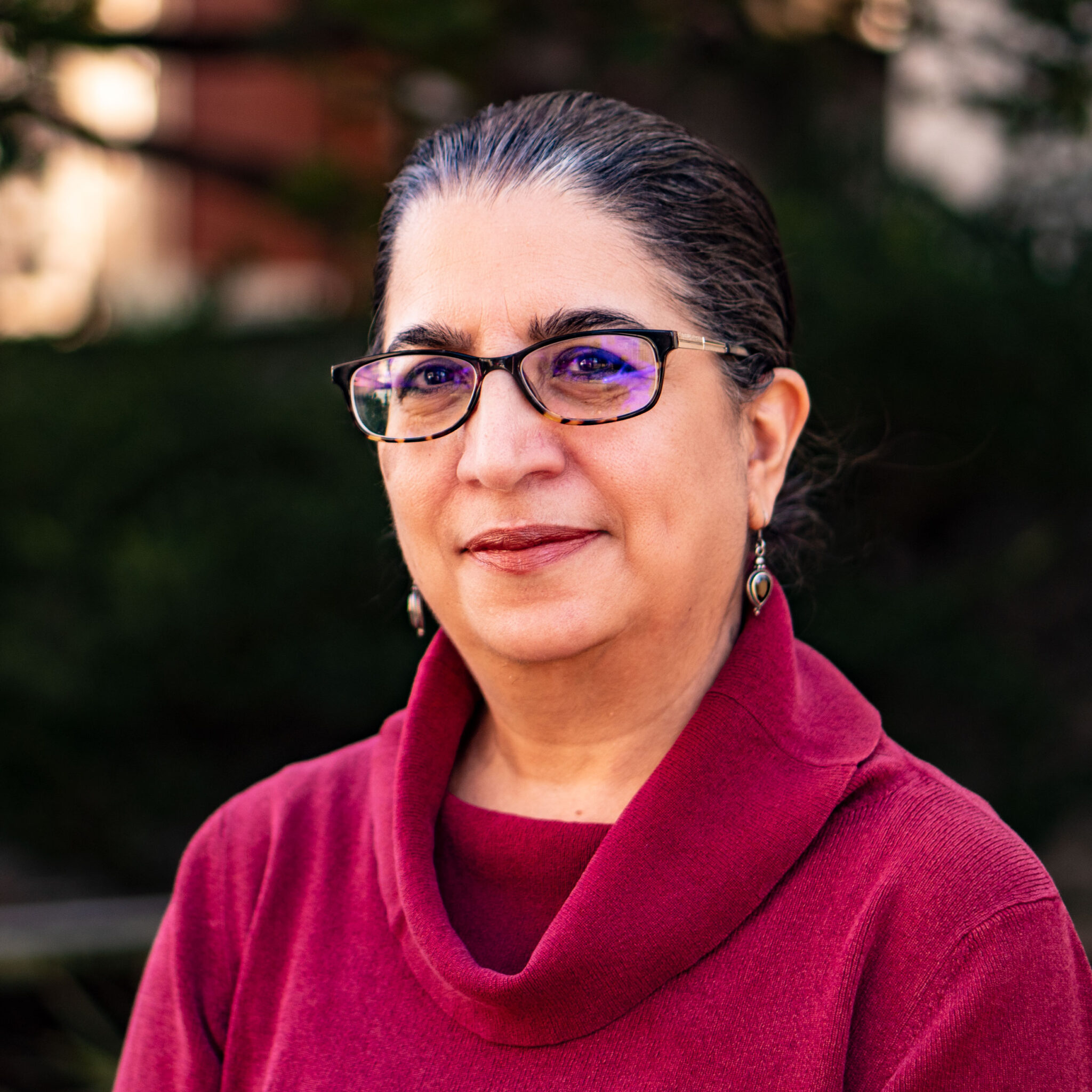
It is no coincidence that his personal exploration began on the steps of the Greenfield Intercultural Center. The GIC became a home away from home during his time in Philadelphia. Through inclusive spaces and programming initiatives, as well as relationships formed with Penn students from diverse backgrounds, the GIC made a particular impact on his personal development as a multiracial student.
“It’s easy to feel like you’re not enough of one thing or the other – you’re not Latinx enough, you’re not Asian enough, you’re not whatever enough,” Massa said. “The GIC people came from these vastly diverse backgrounds. No matter what you were, you were accepted, and you belonged. Not only that, but they also took that angle to other forms of identity beyond ethnicity, like religious identity or socioeconomic background.”
Embracing his identities forged his passion for intercultural engagement and global affairs that shepherded his career path as a diplomat.
Massa graduated from Penn in 2015 with a major in Health and Societies with a concentration in global health and a minor in philosophy. He was a baccalaureate speaker, in addition to serving as a representative on the United Minorities Council.
Pivotal Moments
Massa grew up in San Jose, Calif., a multicultural city that in many ways was a melting pot that was much like his own. He identifies as Mexican and Apache on his maternal side, and Japanese, Hawaiian, and Lithuanian on his paternal side.
Almost immediately, he was drawn to Natives at Penn, a student organization that represents indigenous students. On his first day on campus, Vanessa Iyua, former associate director at the GIC, handed him a Natives at Penn brochure and a Daily Pennsylvanian article on its annual powwow. In many ways, Massa and four other students were being handed over the leadership. Together, they rebuilt the organization, formerly known as Six Directions, from the ground up.
As co-chair, Massa advocated for the Native community on campus by promoting the recruitment and retention of Native American, Native Hawaiian, and Native Alaskan students, as well as connecting students, alumni, and allies in cultural awareness events. Natives at Penn reorganized a room on the third floor of the GIC that they could call their own space, complete with a library and meeting room. The organization hosted a campus powwow that celebrated traditional and modern indigenous culture with singing, dancing, music, food, jewelry, and clothes.
“We were a community,” Massa said. “We looked out for each other. We came from different backgrounds – some of us came from reservations, but most came from the big cities.”
His involvement expanded to a vice president position on the Ivy Native Council, a consortium of the campus organizations across the Ivy League. In that role, he learned from different indigenous groups and understood best practices for addressing certain issues facing those communities. Ivy Native Council met with the National Congress of American Indians to discuss the name controversy with sports mascots, specifically for the Washington football team.
Massa was also involved with the Penn LGBT Center. He was a participant in the LGBT mentorship program and co-chaired the Queer Christian Fellowship.
Massa’s interest in global affairs was piqued by a unique semester-long study abroad opportunity through School for International Training’s International Honors Program. He studied global health and community health in Vietnam, South Africa, and Brazil.
“That was a very pivotal moment for me in terms of getting that international exposure that I had not been introduced to before,” Massa said. “It really changed my perspective upon coming back and then beyond Penn.”
“We were a community,” Massa said. “We looked out for each other. We came from different backgrounds – some of us came from reservations, but most came from the big cities."
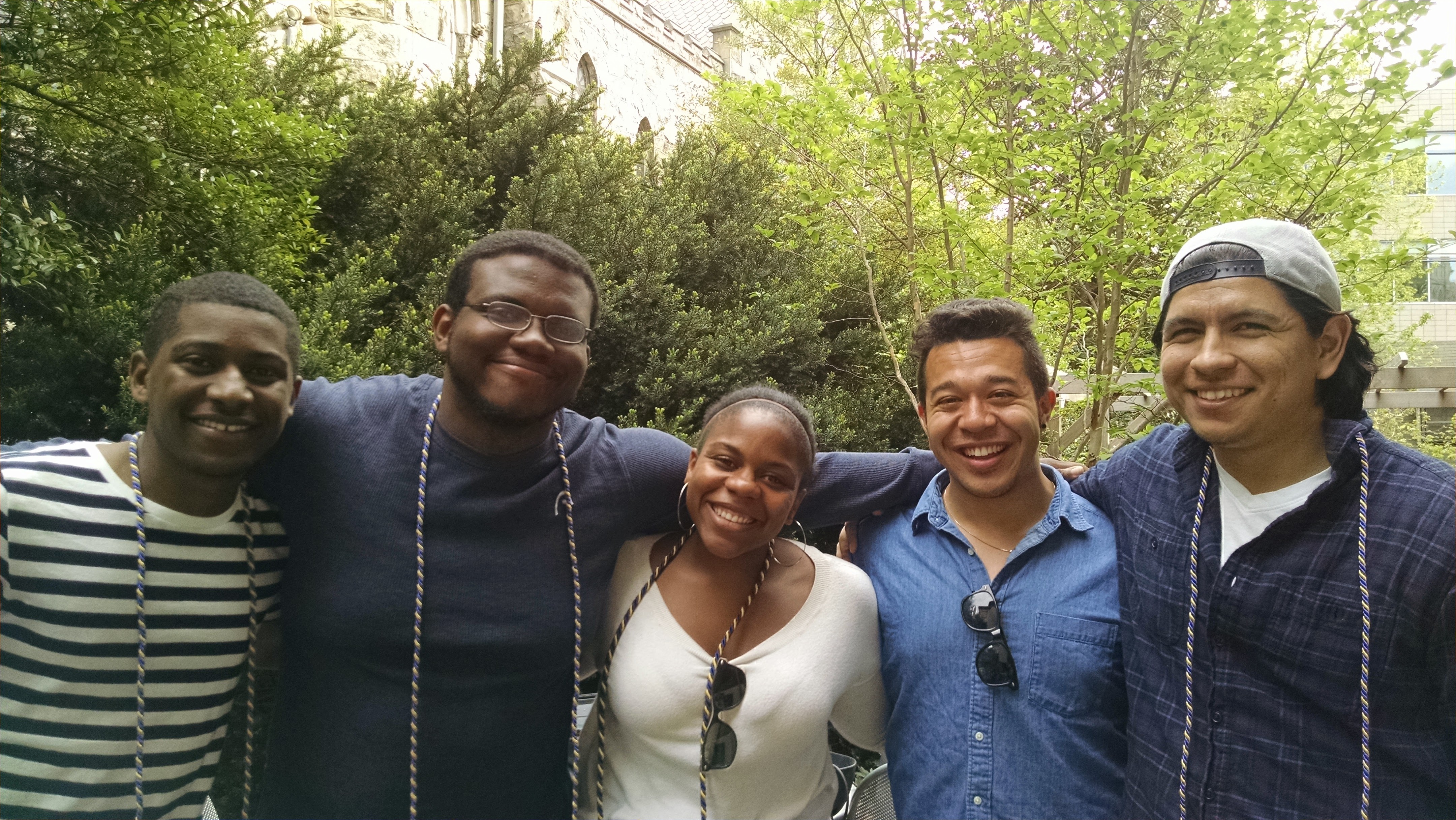
Mentors & Safe Spaces
Director of the GIC Valerie De Cruz first welcomed Massa through his involvement with Natives at Penn and made him feel welcome in his first year. Like many minority students that arrive on an Ivy League campus, Massa, who also identifies as queer, felt imposter syndrome. Massa used De Cruz as a resource anytime he was processing issues of belonging or personal identity.
“She reminded me that I deserve to be there,” Massa said. “When I felt unsure of my own kind of place in the Native community because I am an urban Native, as opposed to someone that grew up on a reservation, she reminded me of my value. She even encouraged me to come out even before I fully accepted who I was.
“She recognized that and nurtured me to fully and authentically be who I am.”
De Cruz had the kind of warmth, attentiveness and caring that allowed her to listen to students in a way that makes them feel heard. In a lot of ways, Massa added, she saw through to the distinct parts of his identity.
Massa grew up in a conservative household and attended a private Christian school for most of his childhood. He took a course called iBelieve: Interfaith Dialogue in Action, a partnership between the GIC, Chaplain’s Office, and the Graduate School of Education. iBelieve was an experimental seminar that took students from various religious backgrounds and fostered a dialogue about different topics ranging from conversion to interfaith marriage.
“Most students come to college with what they were raised to believe,” De Cruz said. “Sean immersed himself in various interfaith groups. He expanded his worldview, and it allowed him to think how he would see himself in the world.”
Massa credits Steve Kocher, Senior Associate Chaplain and Director of the Spiritual & Religious Life Center (SPARC); and Kathleen Hall, Associate Professor of Education and Anthropology, for providing a safe space to confront challenges to his own beliefs.
“That was eye-opening to me in terms of expanding my own worldview and my own understanding of what faith meant to me and my identity,” Massa said. “In a lot of ways, I had grown up in a background that did not fully encourage me to be who I was.”
He served as an upperclassman teaching assistant for iBelieve. Later, as a Penn alumnus, he continues to make an impact at the GIC by mentoring first-generation and low-income students.
Massa’s experiences with the GIC provided him with connections to parts of his own identity that were disconnected to his Bay Area upbringing. He said he felt more grounded in his own Native identity through meeting other students from indigenous backgrounds. Before his sophomore year, he volunteered for College Horizons, a non-profit organization that helps Native American high school students prepare for college. Meeting Native Hawaiians that saw him as one of their own reaffirmed his own identity to his father’s Hawaiian upbringing.hardddd
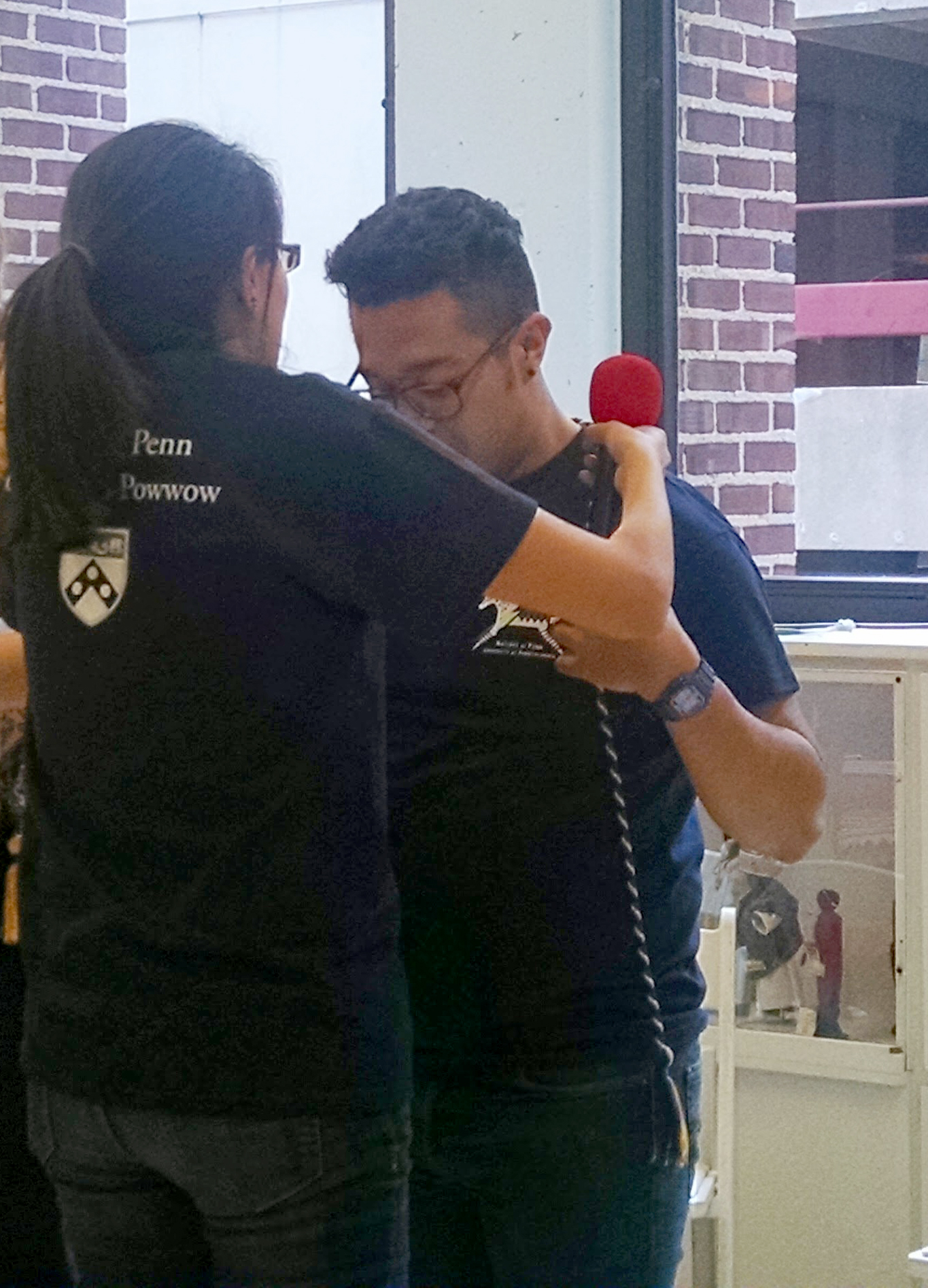
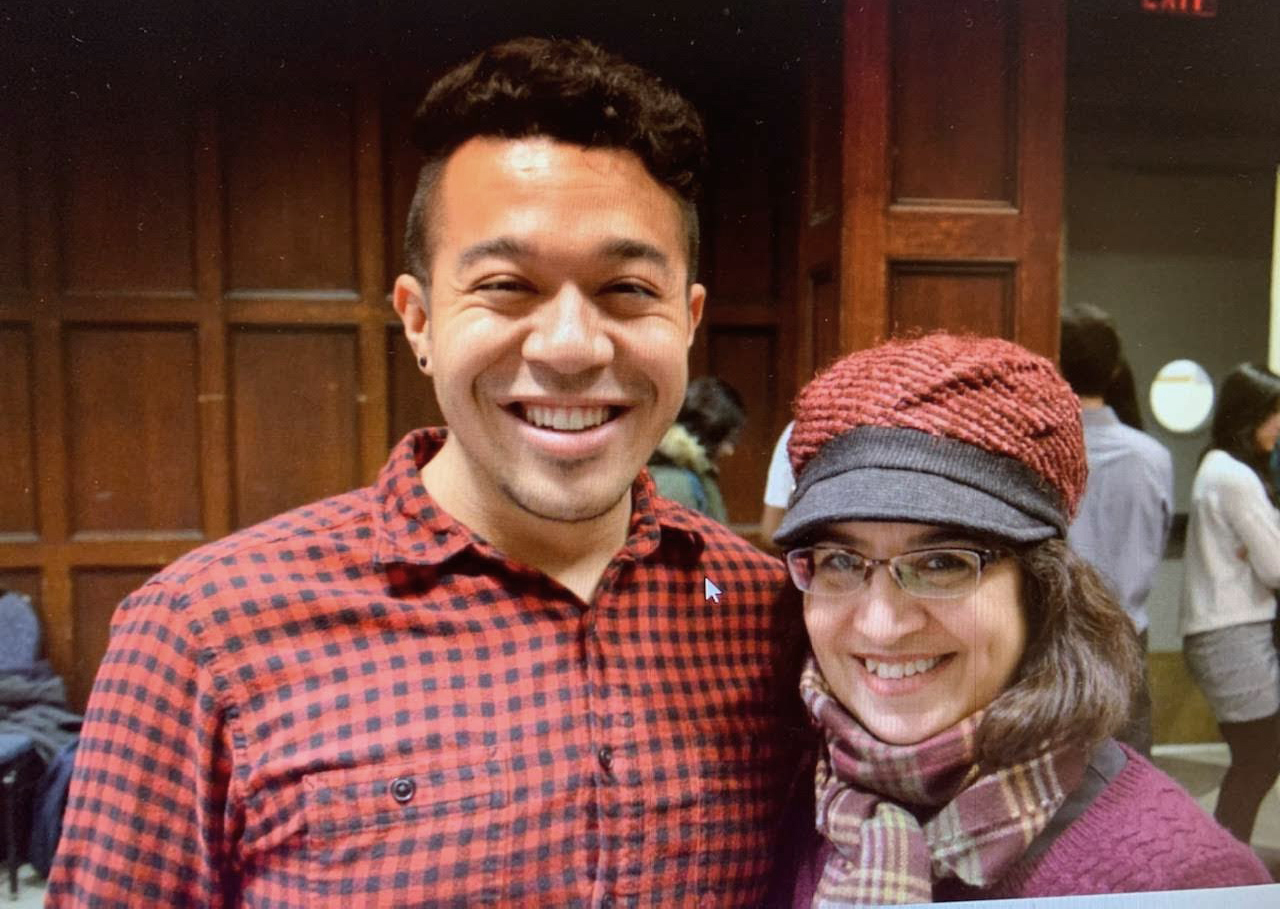
Pipeline of Diversity
In February, Massa was awarded the Charles B. Rangel International Affairs Fellowship. Funded through the U.S. Department of State and administered by Howard University, the Rangel Fellowship is a prestigious pipeline program for diverse individuals that wish to pursue careers in foreign service.
As a Rangel fellow, Massa will intern with Sen. Dianne Feinstein (D-Calif.). He is excited about the congressional internship with his home state’s senator because of her sponsorship of the Violence Against Women Act. Specifically, Massa said VAWA has several provisions that address violence against indigenous and native Hawaiian women.
Massa will intern with the State Department the following summer at a U.S. embassy or consulate abroad to gain boots-on-the-ground experience in Foreign Service. Upon his receiving a master’s degree in May 2024, he will begin orientation to become a U.S. Diplomat, a five-year commitment at an international post in either a political or public diplomacy track. Massa hopes to advance democracy, human rights, and peace around the world.
“I’ve had a lot of time to reflect on what kind of career would best suit me,” Massa said. “I realized I enjoy being abroad and navigating the daily challenges of being abroad through foreign languages, problem solving, and adapting. All those things make me come alive.”
After graduating from Penn, Massa was awarded a Princeton in Asia fellowship to teach at Atma Jaya University in Yogyakarta, Indonesia, and he interned with the United Nations Information Centre and U.N. High Commissioner for Refugees in Jakarta. He received a Master of Arts in Religion at the Yale Divinity School and Master of Laws in Human Rights at University of Hong Kong. Through his LLM program, he picked up the knowledge and skills to promote LGBTQ rights throughout Asia. His dissertation analyzed the legacy of British colonial anti-sodomy laws’ roles in propagating anti-same sex legislation throughout Asia.
His post-graduate experience has also helped shape his career path. At an internship with the United Nations Information Center in Indonesia in 2016-17, Massa met with a mayor to discuss gender empowerment initiatives in the only Indonesian province to practice Sharia.
He moved to Hong Kong in 2018 through a Yale graduate school partnership with the Red Ribbon Centre to conduct research on HIV and ethnic minority and migrant domestic worker communities. Sean also did pro-bono work supporting low-income Hong Kong students pursuing education opportunities in the United States, and he created health and well-being programming with R.U.N. for Refugees, an NGO that works with vulnerable displaced people.
Experiencing Hong Kong’s political unrest movement related to a now-scrapped extradition bill has also motivated his aspirations to become a diplomat. Massa has seen Hong Kong’s ethos change first-hand: its liberal institutions and values have diminished slowly. Political protests have all but ceased, and citizens are hesitant to speak out or voice their opinions. “It made me more aware of the values that the United States upholds and its platform in the world to promote these values and protect them when they are threatened,” he said. “The more I’ve reflected on it, I wanted to pursue a career that would allow me to make a tangible change in that way.”

Throughout June, University Life will celebrate Pride Month with stories and interviews of influential figures in Penn’s LGBTQ community.
Campus Pride Features Penn’s LGBT Center
Penn’s LGBT Center, the second oldest LGBT Center in the country, was featured by Campus Pride during the Fall ’21 semester. Intern Ayla Azim, from Campus Pride, (she/her) interviewed Malik Muhammad (he/him), the Associate Director of the LGBT Center and Erin Cross (she/her), the Director of the LGBT Center to learn more about their work and advocacy on campus. In the interview, Malik and Erin highlight the programming provided by the center and share the ease with which students can get involved on campus in a variety of LGBTQ+ organizations.
The University of Pennsylvania has more than 25 student organizations are dedicated to LGBTQ+ life. These organizations include Penn J-Bagel, a Jewish LGBTQ+ group, the Lambda Alliance,umbrella group of undergraduate LGBTQ+ organizations, and oSTEM, a group for LGBTQ+ people in STEM fields.
The LGBT Center and the University of Pennsylvania are exceptionally proud of their efforts to make campus more inclusive. In the interview, Erin and Malik share that the foundation of their work stems from Penn’s non-discrimination policy, which includes sexual orientation, and gender identity. The creation of this policy has led to the development of health care plans that are available to students, faculty, and staff that include trans and gender affirming care. The creation of all gender housing and bathrooms across campus have also been major projects to increase comfort and inclusion. Students who go through the existing name process receive two diplomas; one with their legal/dead name and another with their name. Currently, the Center is partnering with the Office of the Registrar and others to enable students to designate their pronouns and name in campus systems. Students may also elect to receive multiple diplomas; one document with their legal/dead name and another with their chosen name. Currently, the center is partnering with the Office of the Registrar to make it easier for students to designate their preferred pronouns and preferred name on university documents.
Erin and Malik are excited to see the university grow in its inclusive practices and will continue advocating and improving ways in which the LGBTQ+ population is supported at Penn.
